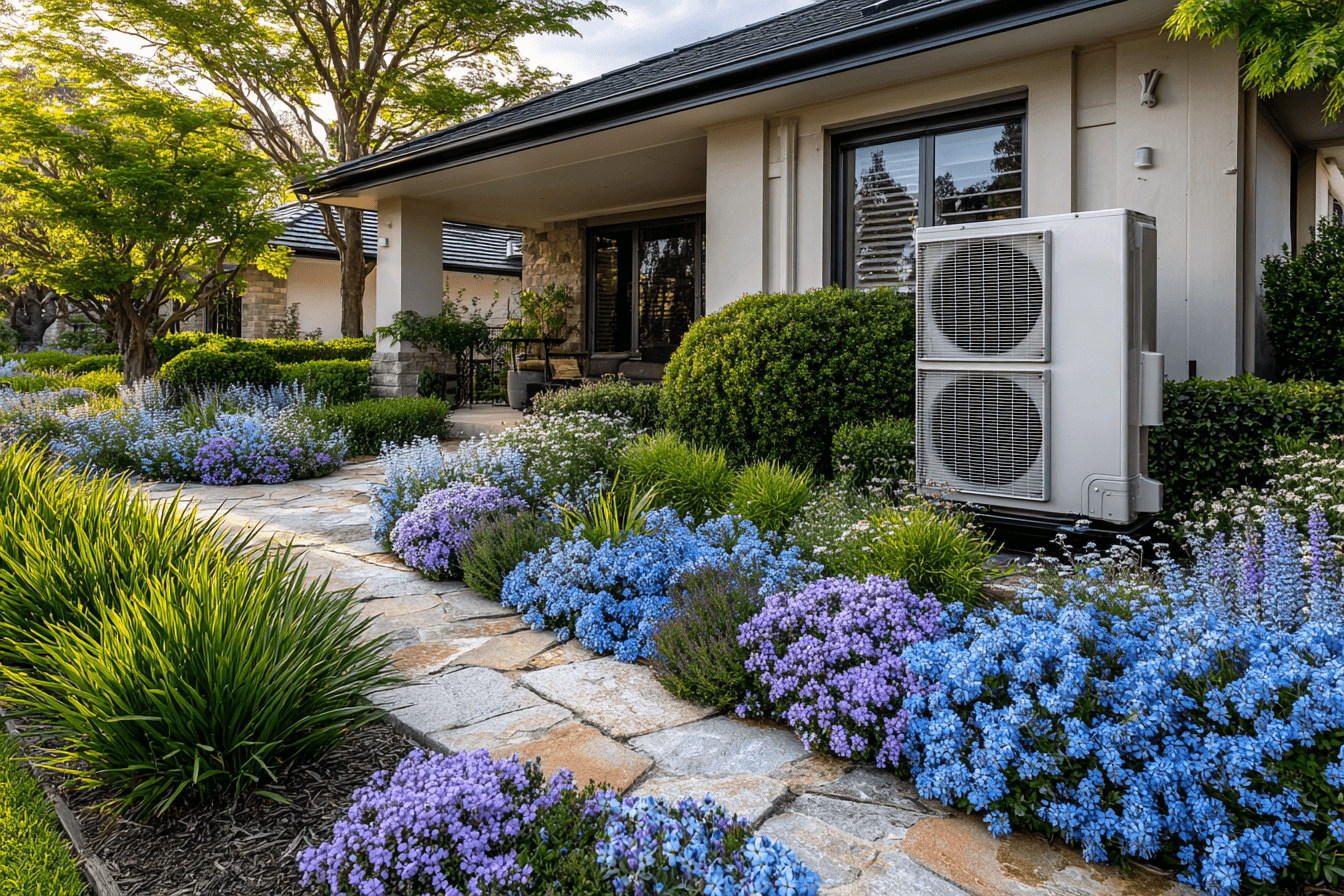Solar Panels vs Heat Pumps: Best Landscaping Practices for Your Home

Written by Solenery
2 min read
When considering solar panels vs heat pumps, one key question many homeowners ask is how to integrate them seamlessly into their yard.
Landscaping isn’t just about aesthetics. The right plants, hardscaping, and layout choices can improve airflow, reduce system wear, and enhance the visual appeal of your clean energy investment. In this guide, we’ll walk you through how to landscape smartly around solar panels and heat pumps in a Canadian climate so your yard looks as good as your energy bills feel.
How to Landscape Around Ground-Mount Solar Panels
If your panels are on the ground (common on farms, acreages, or homes with shaded roofs), landscaping becomes a big part of the design.
Do:
- Create a stone or mulch bed around the base
- Use dwarf ornamental grasses that won’t shade the panels
- Frame the array with low shrubs for symmetry
Don’t:
- Plant tall trees or fast-growing hedges that cast shadows
- Let vines or branches grow into the racking
- Place anything within 1 metre of the back or front of the array
Canadian context: Eastern red cedar, creeping juniper, and little bluestem are hardy choices from BC to PEI.
Smart Planting Around Heat Pump Outdoor Units
Heat pumps need space to breathe, but that doesn’t mean they need to be exposed.
Ideal features for heat pump landscaping:
- Non-deciduous shrubs that stay full year-round
- Plants that won’t drop sap, berries, or heavy debris
- 12–24 inches of open clearance around all sides
| Plant Type | Good Picks | Avoid |
|---|---|---|
| Evergreen shrubs | Boxwood, dwarf cedar | Yew (too dense) |
| Ornamental grasses | Karl Foerster, switchgrass | Pampas (messy) |
| Ground cover | Thyme, sedum | Ivy (invasive near vents) |
Tip: Use gravel or pavers under and around the unit to prevent mud, erosion, and winter salt damage.
Read more: Government Rebates for Solar Panels and Heat Pump in Canada (2025)
Solar Panels vs Heat Pumps: Design Ideas That Combine Beauty and Function
| Feature | What It Does |
|---|---|
| Lattice screen + vines | Hides equipment, softens lines |
| Raised bed around ground-mount | Makes panels part of the landscape |
| Stepping stone path | Provides tech access + looks intentional |
| Drip irrigation | Keeps plants happy with minimal mess |
| Lighting | Adds drama and helps spot snow accumulation |
Bonus: Some homeowners add garden art or bird-friendly landscaping around their panels for seasonal flair.
Read more: How to Hide Your Heat Pump Without Blocking Airflow
Regional Landscaping Tips Across Canada
| Region | Landscape Challenge | Tip |
|---|---|---|
| BC Coast | Damp + fast-growing plants | Choose low-maintenance evergreens |
| Prairies | Dry spells + high winds | Use gravel mulch to retain moisture |
| Ontario/Quebec | Four-season visibility | Pick shrubs that offer year-round cover |
| Atlantic Canada | Salt spray near coast | Choose salt-tolerant, hardy shrubs |
Pro Tip: Ask your installer for a sun path diagram so you can avoid placing shade-producing plants near key zones.
DIY vs. Designer: When to Bring in Help
If your property has multiple clean energy systems (solar + heat pump + EV charger), consider working with a landscape designer who understands tech constraints.
For small yards, a DIY approach with raised beds, gravel, and a few shrubs goes a long way.
Look for “energy-smart landscaping” services in urban areas, they’re popping up across Toronto, Vancouver, and Montreal.
Conclusion
Smart landscaping is the secret sauce to making your solar panels vs heat pumps setup feel like a natural extension of your home. With the right plants, placement, and care, your systems won’t just work efficiently, they’ll look amazing doing it.